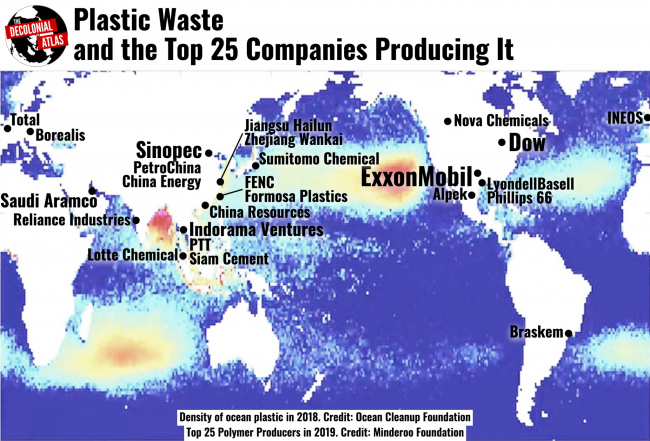Articles Menu

The Decolonial Atlas is a growing collection of maps which, in some way, help us to challenge our relationships with the land, people, and state. It’s based on the premise that cartography is not as objective as we’re made to believe. The orientation of a map, its projection, the presence of political borders, which features are included or excluded, and the language used to label a map are all subject to the map-maker’s bias – whether deliberate or not. Because decolonization is a process of unlearning and rediscovering, we’re especially committed to Indigenous language revitalization through toponymy – the use of place names.
The Decolonial Atlas is a volunteer-run project. Our original content is offered for free through the Decolonial Media License 0.1.
Top image:
“The earth is not dying, it is being killed, and those who are killing it have names and addresses.” – Utah Phillips
The global plastic waste crisis has impacted huge swaths of our planet’s oceans and waterways, but just a few petrochemical companies hold the fate of the world’s plastic crisis in their hands. The 25 companies shown here are the source of more than half of single-use plastic items thrown away globally. ExxonMobil alone contributes 5.9 million metric tons to global plastic waste, closely followed by Dow and Sinopec. Their business model relies on the destruction of the only home humanity has ever known. Meanwhile, we misdirect our outrage at our neighbors, friends, and family for using plastic straws or not recycling. Whether or not we separate our recycling, these corporations will go on trashing the planet unless we stop them.
Map by Jordan Engel. As always, the Decolonial Atlas’ original media can be reused under the Decolonial Media License 0.1.
Sources:
Minderoo Foundation Plastic Waste Makers Index
Ocean Cleanup Foundation